Speakers
Owanto Berger
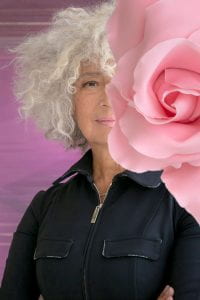
Owanto is a multi-cultural Gabonese artist with a practice emerging from a 30-year-old career where she explores a variety of media, including photography, sculpture, painting, video, sound, installation and performative works. This practice enables her to engage with consciousness through the notion of memory, both personal and collective.
In 2009, she represented the Republic of Gabon at the 53rd Venice Biennale with a solo show entitled “The Lighthouse of Memory – Go Nogé Mènè”, being the very first artist from Central Africa to exhibit solo in a National Pavilion. Through the use of archives and found documents her proposal traces the past to shape the future, honouring the title “Go Nogé Mènè” which means “building the future” in her mother tongue. Central to her artistic proposal is the question “OÙ ALLONS NOUS?” (Where Are We Going?). A poetic, omnipresent, important, fundamental and universal probe.
Owanto’s current projects focus on the female condition, emancipation and the breaking of silence. The creative force behind it stems from her belief in the ability of art to transform consciousness. The artist’s work sheds new light on difficult and relevant issues which prevent us from ignoring what takes place around us. Her concern for social issues has compelled her to campaign for relevant but uncomfortable and often ignored topics.
Joana Choumali
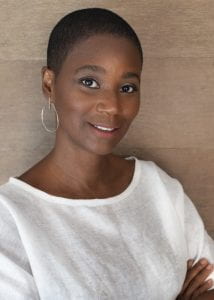
Joana Choumali, born in 1974, is a visual artist/ photographer based in Abidjan, Côte d’Ivoire. She studied graphic arts in Casablanca (Morocco) and worked as an art director in an advertising agency before embarking on her photography career. She works mainly on conceptual portraits, mixed media and documentary photography. Much of her work focuses on Africa, and what she learns about the innumerable cultures around her. In her latest works, Choumali embroiders directly on the images completing the act of creating the photograph image with a slow and meditative gesture. Choumali has exhibited her work around the world. In 2014, she won the CapPrize Award and the 2014 Emerging Photographer LensCulture Award. In 2016, she received the Magnum Emergency Grant Foundation, and the Fourthwall Books Award in South Africa. In 2017, she exhibited her series Translation and Adorn at the Pavilion of the Ivory Coast during the 57th Venice International Biennale.
On 13 November 2019, she became the first African winner of the Eight Prix Pictet for her series Ça va aller (It will be ok) on this cycle’s theme of ‘Hope’. Her work has been published in the international press : CNN, New York Times, Washington Post, El Pais (Spain), Le Monde, The Guardian, The Huffington Post, Harper Bazaar Art, The Financial Times.
Her book HAABRE, was published and edited in Johannesburg in 2016.
Joana Choumali was recently named 2020 Robert Gardner Fellow in Photography by The Peabody Museum of Archaeology & Ethnology, Harvard University, United States.
Gerald Chukwuma
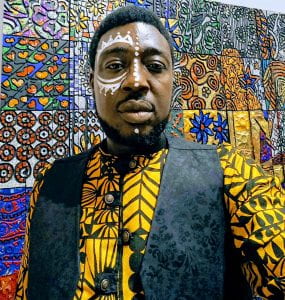
Gerald Chukwuma is a mixed media artist and storyteller who uses a multitude of techniques. His unique, painstaking approach to burning, chiselling, pounding and painting common materials captures a multi-layered history embedded with personal and political meaning. He reflects on the interwoven histories of Nigerian culture, deliberately shinning a light on the southeastern region.
His art explores migration as a constant process of transformation. Working with his signature upcycled aluminium, battered wood carvings and installations, he creates works that reflect the joys, struggles and erosion of culture and language as it grinds in the mortar of globalisation through richly illustrated depictions of stories, myths and legends. He tells his story using the uli and nsibidi patterns in a refreshing way. Laden with personal and symbolic meanings, they speak to our human desire to communicate with each other and share stories about who we are, where we have come from, where we may be going, and most importantly, what we are saliently becoming.
Gerald’s audacious and inherently dramatic pieces explore creative opportunities locked in certain waste materials and the possibilities of creating narratives and emotional contents that allude to notions such as globalisation, decay, movements, slavery, culture and history. The entire demeanour of his art is majestically severe, forceful, unrelenting, colourful, abrasive, playful and even imposing and he has exhibited widely in many parts of the world including Nigeria, the United States of America, United Kingdom, Denmark, Turkey, Netherlands, South Africa and Berlin.
In 2008 and 2011, Gerald emerged as one of the top three winners in the reputable national art competition. His art was featured in CNN’s Inside Africa in 2011 and The New York Times Art Review in 2019. His works are in collections including: University of Nigeria Nsukka, Beth Rudin De Woody, USA, The Hague, Netherlands, Eston Capital/John Friedman Collection, Pan African University, Lagos, Seth Dei Collection, Accra, The World Bank Collection Washington D.C., Yemisi Shyllon Museum, Lagos.
Born in Nigeria in 1973, he cultivated his aesthetic at the University of Nigeria, Nsukka where he earned his art degree summa cum laude.
Serge Attukwei Clottey
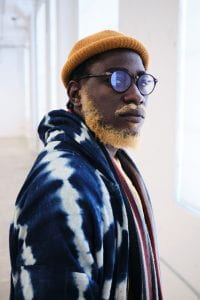
Serge Attukwei Clottey (b. 1985) is known for work that examines the powerful agency of everyday objects. Working across installation, performance, photography and sculpture, Clottey explores personal and political narratives rooted in histories of trade and migration. Based in Accra and working internationally, Clottey refers to his work as “Afrogallonism”, a concept that confronts the question of material culture through the utilisation of yellow gallon containers.
Cutting, drilling, stitching and melting found materials, Clottey’s sculptural installations are bold assemblages that act as a means of inquiry into the languages of form and abstraction. Utilising flattened Kuffuor gallon, jute sacks, discarded car tires and wood pieces, he forms abstract formations onto which he inscribes patterns and text. In doing so, he elevates the material into a powerful symbol of Ghana’s informal economic system of trade and re-use. While some surfaces resemble local textile traditions such as Kente – a key reference in west African Modernism throughout the 20th century – others refer to barcodes and feature Chinese characters in reference to the emergence of new power structures in Ghana. In Clottey’s drawings, the artist explores a formalist approach, depicting disjointed figures and faces, not unlike the visions of nude women under Cubism, a European movement which drew heavily from traditional African tribal sculpture. In recognition of his achievements, Clottey was awarded an Honorary Doctorate in Arts by the University of Brighton in 2019.
Andrew Comben
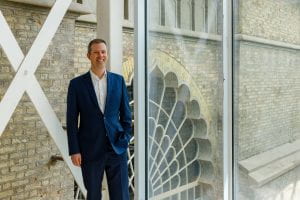
Andrew joined Brighton Dome and Brighton Festival as Chief Executive in 2008, having previously worked in classical music for Wigmore Hall, Aldeburgh Music (Britten-Pears Young Artist Programme) and Young Classical Artists Trust. At BDBF he has established the Guest Director model for Brighton Festival (with artists such as Anish Kapoor, Laurie Anderson, Kae Tempest, David Shrigley and Lemn Sissay) and developed a new vision for the organisation as a year-round centre of artistic activity and involving all areas of the community in the performing arts.
Modupeola Fadugba
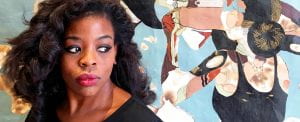
Modupeola Fadugba (born 1985 in Lomé, Togo) is a multimedia artist working in painting, drawing, and socially-engaged installation. Her works explore cultural identity, social justice, game theory, and the art world within the socio-political landscape of Nigeria and our greater global economy. The People’s Algorithm – a game installation that fosters debate about how to improve Nigeria’s education system – was awarded El Anatsui’s Outstanding Production Prize and a 2016 Dakar Biennale Grand Prize from Senegal’s Minister of Communication. Her most recent exhibition, Dreams from the Deep End, depicts swimmers exploring collaborative ways of being in the water together, set against the bleak backdrop of America’s racialised – and oftentimes tragic – swimming history.
Selected solo exhibitions include: Dreams from the Deep End, Gallery 1957, Accra (2018); Prayers, Players & Swimmers, Cité des Arts, Paris (2017); Synchronised Swimming & Drowning, London (2017); and Like Play, Like Play, Dakar (2016). Selected group exhibitions include Summer Exhibition 2017, Royal Academy, London (2017); Afriques Capitales, Gare Saint Sauveur, Lille (2017); Dak’Art, Dakar (2016); The Art Energy, London (2015); and Design is the Personality of an Idea, Ford Foundation & African Artists Foundation, Lagos (2015). Her work is included in international collections such as the Minneapolis Institute of Art.
Fadugba holds a Bachelors in Chemical Engineering from the University of Delaware, a Masters in Economics from the University of Delaware, and a Masters in Education from Harvard University. She currently lives and works in Abuja, Nigeria.
Alessia Glaviano
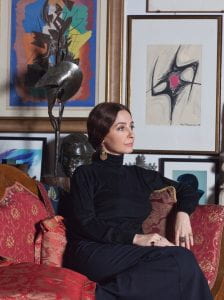
Alessia Glaviano is the Brand Visual Director of Vogue Italia and Director of the Photo Vogue Festival.
Glaviano is a leading figure in the panorama of international photographic criticism. Besides curating a series of interviews with the Masters of photography for Vogue Italia’s website and instagram, which have acquired enormous popularity among the community of people interested in photography and which are also broadcast on Sky Arte channel, in 2011 Glaviano launched Photo Vogue, an innovative platform on which users can share their own photographs knowing they can rely on the curatorial supervision of professional photo editors.
At a time when photography was already ubiquitous online, Alessia felt that what was missing was a curated platform dedicated to it. Conceived as a community with a strong sense of belonging, as of today, Photo Vogue counts over 230,000 photographers, from amateurs to professionals, hailing from all over the world, with a shared passion for photography and the desire to help each other and grow together. Anyone can register and upload images of all genres, from portraiture to reportage, fashion and street photography. Curating a pool of incredible image-makers from all around the world, Photo Vogue is a great example of diversity behind the camera.
Many of Photo Vogue photographers have grown to become some of the most interesting voices in contemporary photography, who now regularly produce editorials and branded content for the most prestigious international magazines. The mission of Photo Vogue has always been to champion talent and contribute to shaping a richer and more diverse industry. In order to have a physical and virtual space in time to bring the community together and further the conversation around the promotion of creativity, diversity and justice in image-making, in 2016 Milan hosted the first edition of the Photo Vogue Festival. The event marked the first conscious fashion photography festival dedicated to the shared ground between Ethics and Aesthetics, bound to an influential fashion publication, and engaging the whole city of Milan with talks, exhibitions and photography-related initiatives. The 5 editions of the festival in 2016, 2017, 2018, 2019 and 2020 were always met with critical and public success.
Besides the editorial activity, Alessia holds lectures and conferences on a regular basis. Some of the institutes and universities she was invited as guest lecturer include: IED, Bocconi University and the Milan Polytechnic.
Glaviano was invited to participate as jury member in numerous internationally acclaimed photography contests including the World Press Photo and the Festival International de Mode et de Photographie à Hyères; and has participated in several portfolio review sessions, including the “New York Times Portfolio Reviews”.
Azu Nwagbogu
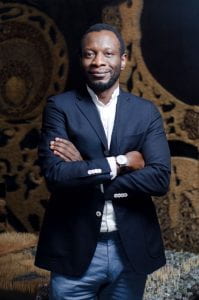
Azu Nwagbogu is the Founder and Director of African Artists’ Foundation (AAF), a non-profit organisation based in Lagos, Nigeria.
Nwagbogu was appointed as the Interim Director/ Head Curator of the Zeitz Museum of Contemporary Art in South Africa from June 2018 to August 2019. He also serves as Founder and Director of LagosPhoto Festival, an annual international arts festival of photography held in Lagos. He is the creator of Art Base Africa, a virtual space to discover and learn about contemporary art from Africa and its diasporas. Nwagbogu is a curator with a special interest in future museology.
Marwan Zakhem
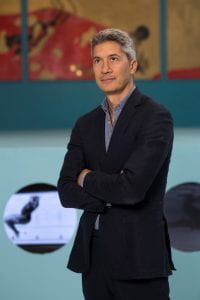
Marwan Zakhem is the Founder of Gallery 1957. The gallery has evolved from over a decade of private collecting. Marwan has spent the last 15 years living in Africa where he developed a passion for contemporary African art. Through his role as a Managing Director at Zakhem, a family-owned business focused on engineering and construction, he has lived in both Senegal and Ghana. Initially founded in 1963 in Lebanon, the Zakhem group of companies extended to eight African countries to meet the expanding construction needs of the continent. Since 2003, Marwan has been based in Accra, working on Zakhem’s projects in the region. Marwan sits on the board of the Tate Africa Acquisitions Committee.
Gallery 1957 was founded to support, complement and highlight the art scene that is already started to grow in West Africa. Following repeated conversations with art authorities, Marwan created Gallery 1957 in response to the perceived needs of West African artists in the region. He is dedicated to establishing the gallery to further understanding of the region’s art and artists. Marwan’s experience as a collector and close personal involvement with the art infrastructure of the region positions him to identify ways to improve and extend opportunities for increased understanding of the West African art scene. Since opening in 2016, the gallery has expanded its offering to London, opening an outpost space at Hyde Park in addition to their locations in Accra.
Facilitators
Marina Novelli
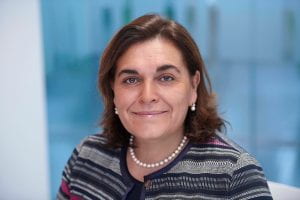
Professor Marina Novelli (PhD) is Professor of Tourism and International Development and Academic Lead for the Responsible Futures Research and Enterprise Agenda at the University of Brighton (UK). With a background in economics, she has written and advised extensively in the field of international tourism, hospitality and event policy, planning, development and management in Africa, Europe and Asia for institutions such as the World Bank, the EU, UNESCO, UNIDO, the UNWTO, the Commonwealth Secretariat, the Millennium Challenge Corporation, National Ministries and Tourism Boards, Regional Development Agencies and NGOs. Professor Novelli is committed to generating new knowledge and innovative ways to foster sustainable development, by stimulating local economies, conserving the environment, developing people and changing lives. Her involvement with the African contemporary arts world builds upon over 20 years of research and consultancy, which have demonstrated to have impact far beyond tourism, by contributing to more effective economic growth, improved environments and more inclusive societies.
Maria Pia Bernardoni
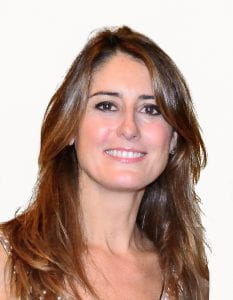
Maria Pia Bernardoni is a contemporary arts’ curator, international project facilitator and art events’ organiser. With a background in humanities and law, she is interested in human rights and issue of contemporary relevance, particularly investigating the role of photographic representations of identity, culture, spaces, social interactions and genders. Having worked with artists and institutions from several African countries, as curator, consultant and artists’ representative, she has built a strong trusted reputation, networks and relationships with many African arts practitioners, particularly in West Africa (Nigeria, Ghana, Ivory Coast and Senegal). She has made an impact in the artistic and photographic scene and significant contribution through the promotion of cross-cultural projects and exchanges between Europe and Africa, breaking barriers and stereotypes. She manages and collaborates with diverse multi-cultural teams and operates in highly diverse cultural environments, adjusting the processes and the programs to local necessities and praxis. Her main interests sit in the organisation and promotion of community-based projects’ domain as she strongly believes in the positive socio-economic impact of participatory processes. She is recognised as one of the leading experts in African photography and African related art issues and is often invited as a conference panelist or advisor on the subject.
Since 2020, she has been a visiting researcher at the University of Brighton, contributing to a project aiming at building innovative and fruitful collaborations between the academy and the contemporary art world.